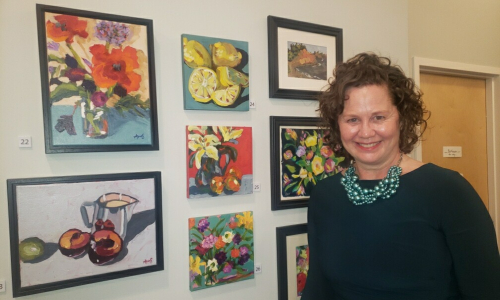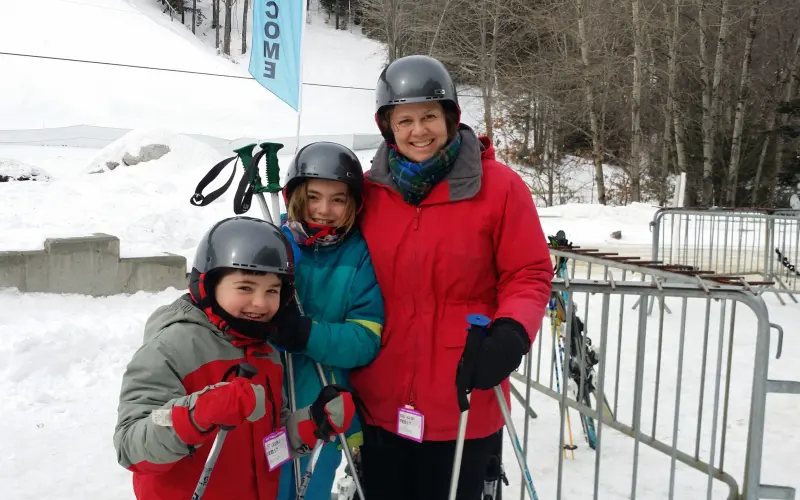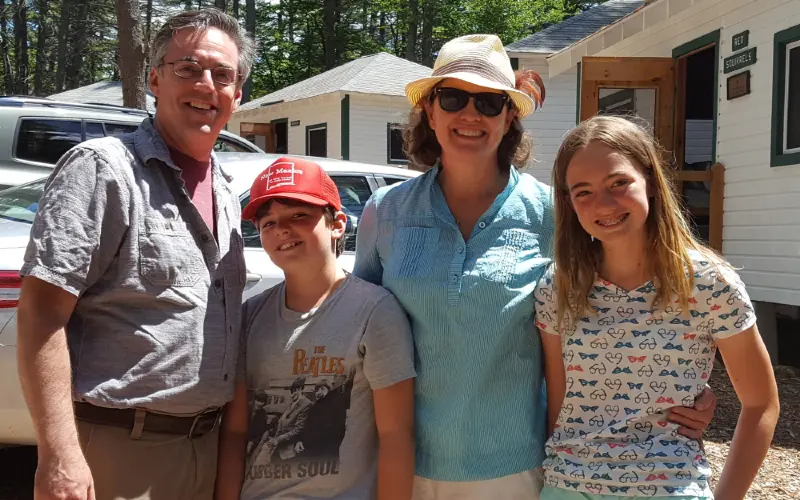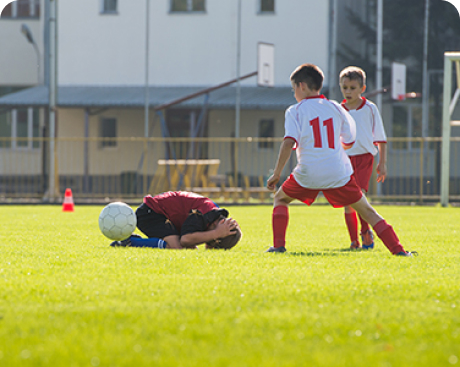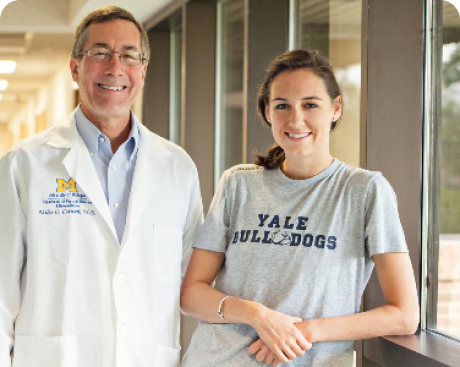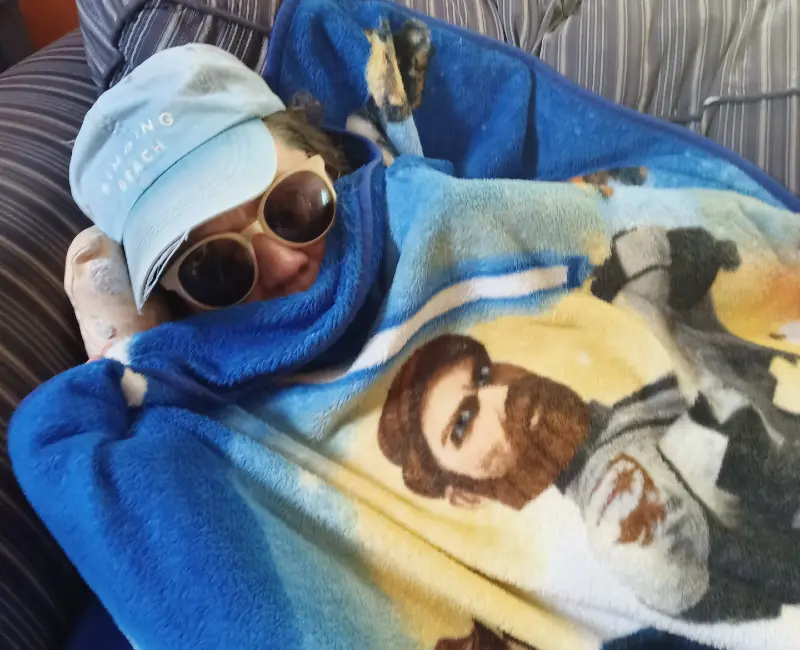
Still, Allison tried her best to be there for her children. She went to school to see her daughter in the fifth grade play and traveled to see her son in basketball tournaments. She also helped him practice by shooting hoops, using a deflated soccer ball (since she was afraid of being hit), despite how she was feeling.
One day, when Allison thought she was better, she took her son to the basketball court to play a game. But when a ball hit her on the head, she suffered another concussion – just 14 months after her skiing accident. The symptoms came roaring back.
“I was being a good mom, playing with my son,” said Allison. “He needed me.”
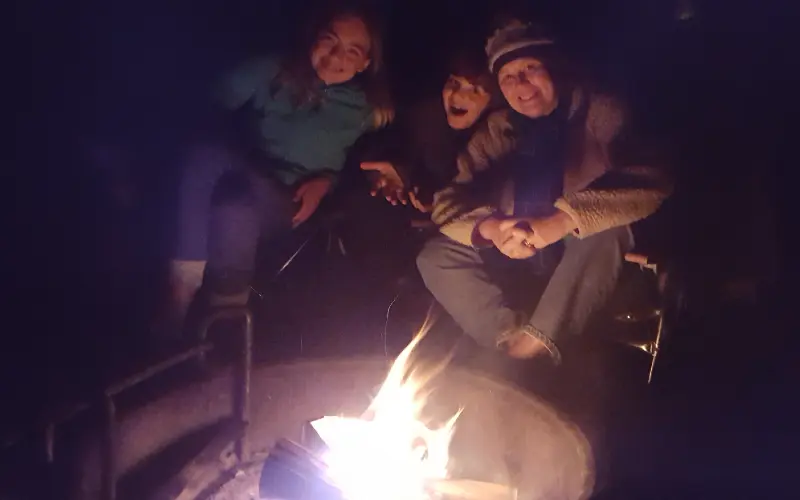
Days turned into weeks, weeks quickly blended into months, and months became years. Because Allison’s symptoms kept her mostly at home and isolated, she became severely depressed and felt like she was failing her family. Emails to her physician regarding treatment and requests to see a neurologist were mostly ignored until she was finally able to see a doctor at Massachusetts General Hospital.
There, doctors told Allison her brain looked fine, but she had some cognitive issues and chronic PTSD from years of living with untreated post-concussion syndrome (PCS) and would benefit from seeing a speech-language pathologist. She found out she had measurable problems with memory and executive functioning and would need to learn how to manage her nervous system.
Tasks like grocery shopping and sending her children to their various activities became much easier when Allison started creating checklists, which required less working memory. She does it to this day, crossing items off her to-do list to make sure she’s not forgetting anything and overworking her brain.
To calm her nervous system, Allison’s SLP suggested she draw or paint in an adult coloring book five times daily for 15 minutes at a time. This opened a whole new world for Allison. As she healed, she left coloring books behind and started painting on watercolors, then acrylics, and eventually oils. To share her work, she created the @concussion_recovery_art Instagram account, showing others it’s okay be hurting.
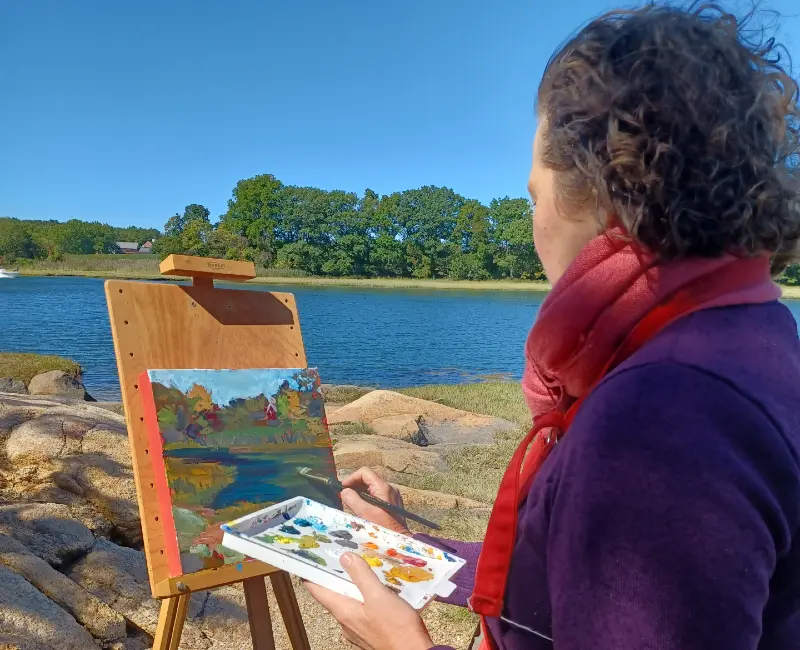
The Concussed Moms support group
Instantly, on Instagram, people with similar concussion experiences started connecting with Allison, including someone who invited her to a concussion survivors group for women.
“After the groups, people would talk about being tired and sleeping for the afternoon,” said Allison. “And the mothers and I would look at each other going, ‘No way.’ Because it was 2 o’clock and we had to go pick up the kids, take them to activities, help with homework, make dinner. No one understood that except the other mothers.”
Allison developed the idea for a concussed moms support group, specifically for mothers navigating the unique challenges presented by motherhood and concussion recovery. She wound up leading the discussions when a friend could no longer organize the meetings.
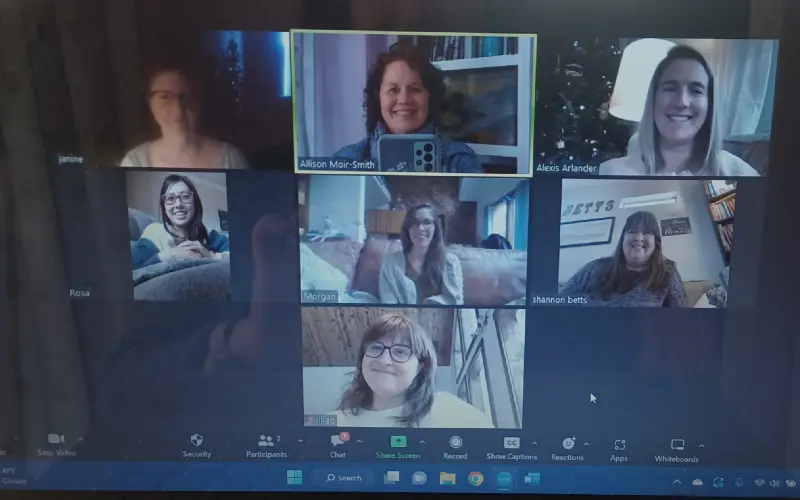
In January 2023, Allison brought her Concussed Moms Patient Support Group under the Concussion Legacy Foundation Peer Support umbrella. She had heard of CLF after her accident and thought this new group would be a natural fit, where she could serve as meeting host but not have to worry about technical details.
Each meeting begins by spotlighting one concussed mom’s experience before opening up for general discussion. All are encouraged to ask questions, connect with others, and share the resources they need.
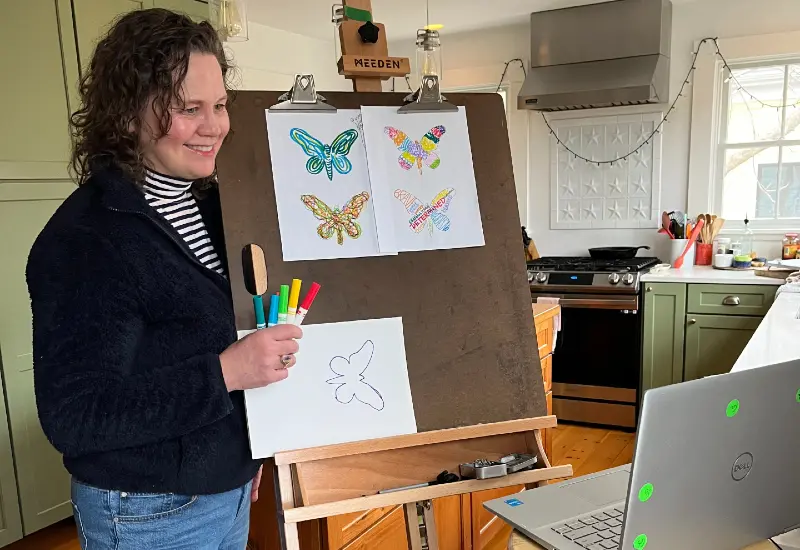
Allison shares a few notes about the group, which consists of moms in their 20s to 60s, with kids ranging from infants to early 30s:
- No one had symptoms show up fully until after seven days, and all were told by providers they would be fine in three weeks.
- It took over two months for all of them to get any sort of treatment.
- They found it impossible to communicate to their loved ones, much less medical providers, the extent of their brains’ malfunction.
- 100% of the group experienced concussion care as focused on youth and male athletes, specifically football players.
They are all so thankful to have found a group of moms who understand and live the struggle of concussion recovery and motherhood. At the conclusion of every meeting, Allison makes sure to end with two affirmations:
- Are you, as a mother and as a wife, doing your best for your family every single day? The answer: Yes!
- No matter what, your family can always feel your love.
“I think these are such important and powerful reminders for the moms,” said Allison. “Sometimes that’s all they need to hear.”
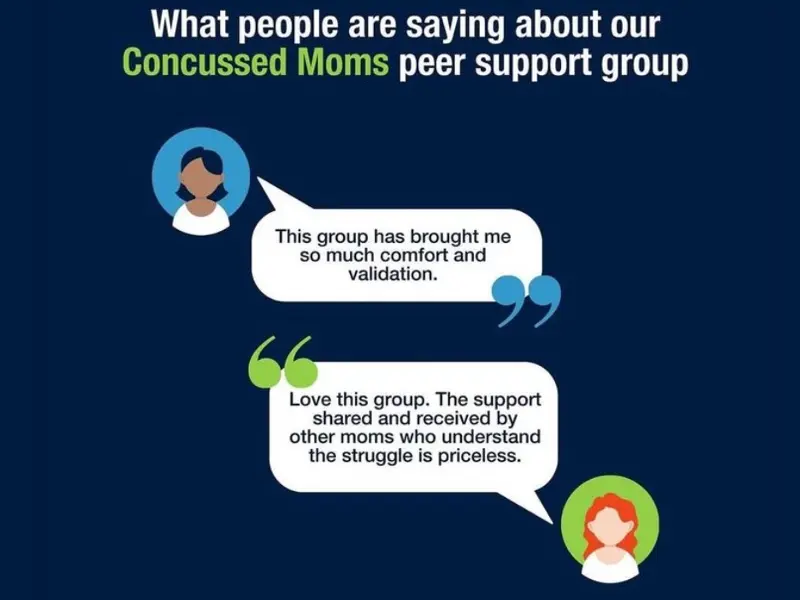
Outside of the group, Allison continues to serve as a concussion activist, spreading awareness through her art and speaking about her experiences in public. She has presented at the International Brain Injury World Congress as well as the Brain Injury Associations of New York, Massachusetts, and New Hampshire, among others. Her heart still breaks seeing others suffer from PCS, and preventing others from suffering like she did has become her life mission – one sharing of her story, one meeting with a peer connection, and one hand-painted drawing at a time. To learn more about Allison and see examples of her work, visit her website here.
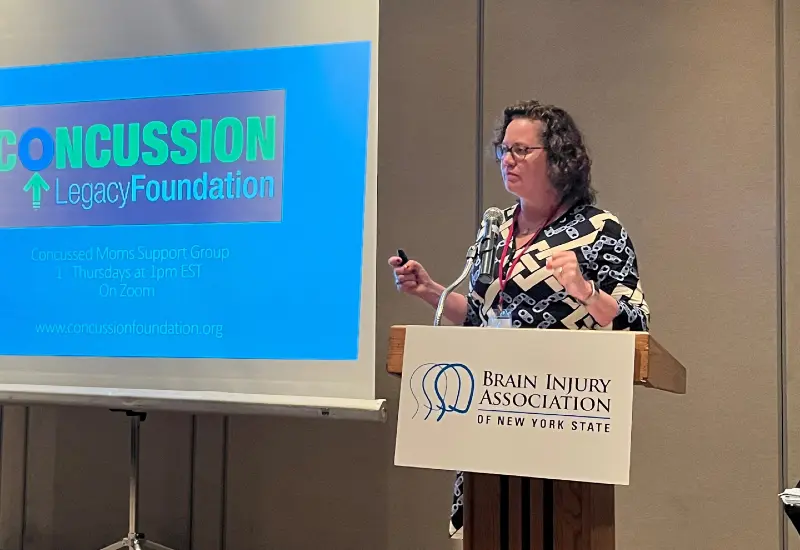
The Concussed Moms support group meets at 1 p.m. ET on the first Thursday of every month. If you are interested in joining, please register here.
